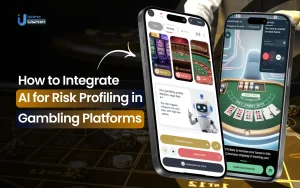The Role of Social Interaction in Bingo Games

Bingo cards and balls on white reflective surface.Bingo cards and balls on white reflective surface.Similar images:
Bingo offers more than just an opportunity for random luck: for many players it offers socialization with others and forging new connections; it can also bring a sense of achievement and excitement.
Bingo offers seniors in rural towns like Bonneauville and Fairfield a vital link between their personal life and public sphere. As Grace puts it: Bingo provides balance to their lives while preventing social disengagement as they age.
Game of chance
Bingo may depend on chance, but marking numbers on a card and listening to them called out can trigger an outpouring of dopamine that can instantly lift players’ mood. Unpredictability adds excitement and participation helps build cognitive ability.
Social aspects of bingo games also draw many players’ interest. Both in a physical hall or online environment, bingo provides plenty of laughter and cheers; participants often form friendships lasting long beyond when their bingo game concludes; these relationships help combat loneliness and isolation, an often present problem among seniors.
Bingo stands apart from other forms of gambling by not being associated with crime or addiction, making it a safe way to stay active and engaged with community life. Regular participation also promotes mental health benefits and can prevent memory loss; plus its structure can teach many skills – for instance number recognition can be practiced using number bingo cards while alphabet and phonics practice is handled via letter and phonics bingo while geography/shape identification through animal or location bingo cards can all be covered using bingo’s rules and structures.
Game of skill
Bingo is an engaging combination of skill and chance, making for an intriguing gaming experience that keeps players coming back for more. Marking off numbers on a card releases dopamine into your body which creates excitement and increases enjoyment for each game played.
Social aspect of game: Connectivity! Additionally, its social nature promotes stronger ties among its participants by giving them the chance to interact with new people – an experience essential for healthy mental wellbeing!
Bingo games are also an effective way for students to develop social skills. They encourage communication among classmates and practice active listening techniques that foster empathy towards others. Furthermore, bingo enables children to identify both their own interests as well as those of classmates – this knowledge can help foster stronger relationships both inside and outside of school as well as foster an inclusive learning environment.
Game of inclusivity
Bingo is an inclusive game that fosters a sense of community for participants of all ages. It promotes social interaction, supports mental well-being, and cultivates competitive spirit among players of all ages. Furthermore, bingo’s adaptability makes it suitable for accommodating special needs players such as larger print cards for seniors with impaired vision – joining organized activities such as bingo can also promote socialization within local communities and help strengthen them further.
Social aspects of bingo draw many players into bingo halls. The atmosphere is filled with laughter and cheers, creating friendships over time. Furthermore, competitive nature of bingo allows players to tap into their desire for success; success can be exhilarating!
Social media provides players with an outlet to exchange tips and strategies and enhance player satisfaction, provide customer support services and solve issues efficiently; as well as offering early access to new games or features.
Game of emotional intelligence
Bingo is an engaging social interaction and unity-promoting game, played both physically and online. With its straightforward rules and unpredictability, bingo makes itself accessible to people of all ages and backgrounds; its predictability also creates suspense and anticipation that keeps people coming back for more!
Bingo not only fosters social well-being, but it can also help develop and maintain cognitive skills. Marking off numbers requires constant mental engagement that improves memory and attention span while decreasing the risk of cognitive decline in older adults.
Feelings Bingo is an effective way to develop empathy and emotional intelligence in individuals. This game teaches individuals to associate facial expressions, body language cues and verbal cues with specific emotions; additionally it fosters perspective-taking practice as well as active listening – making this activity especially helpful for individuals who struggle with social communication or emotional challenges.







